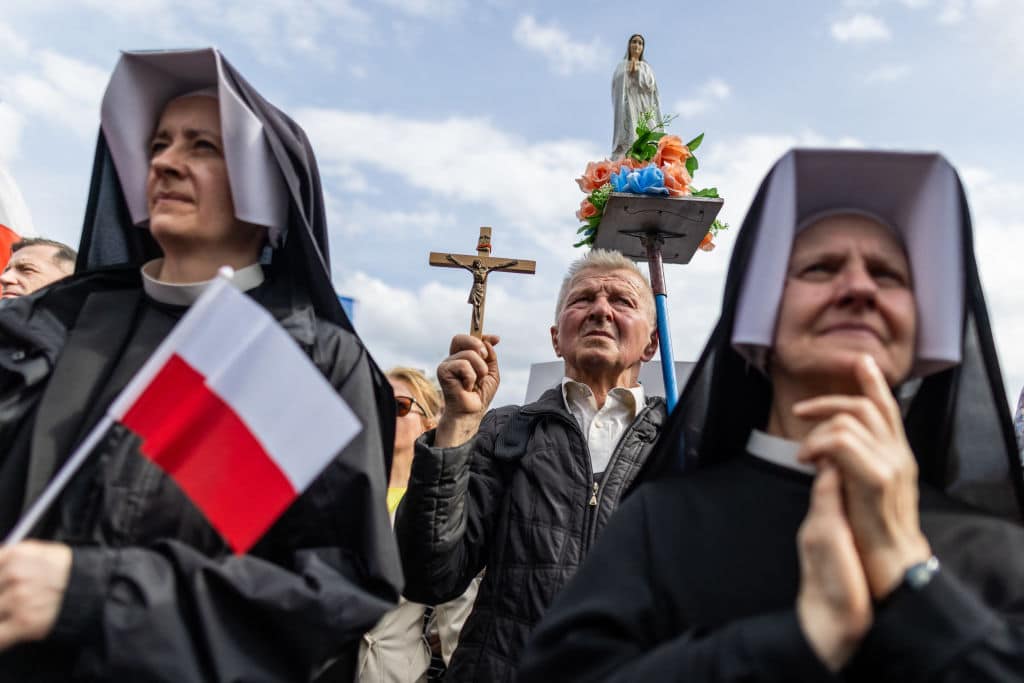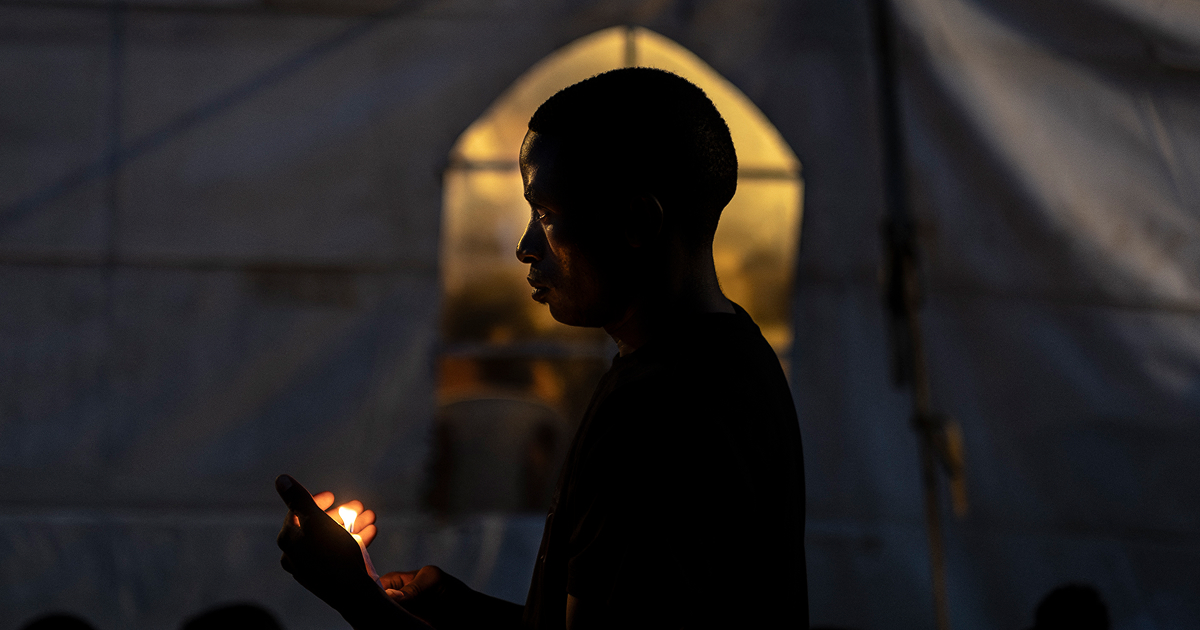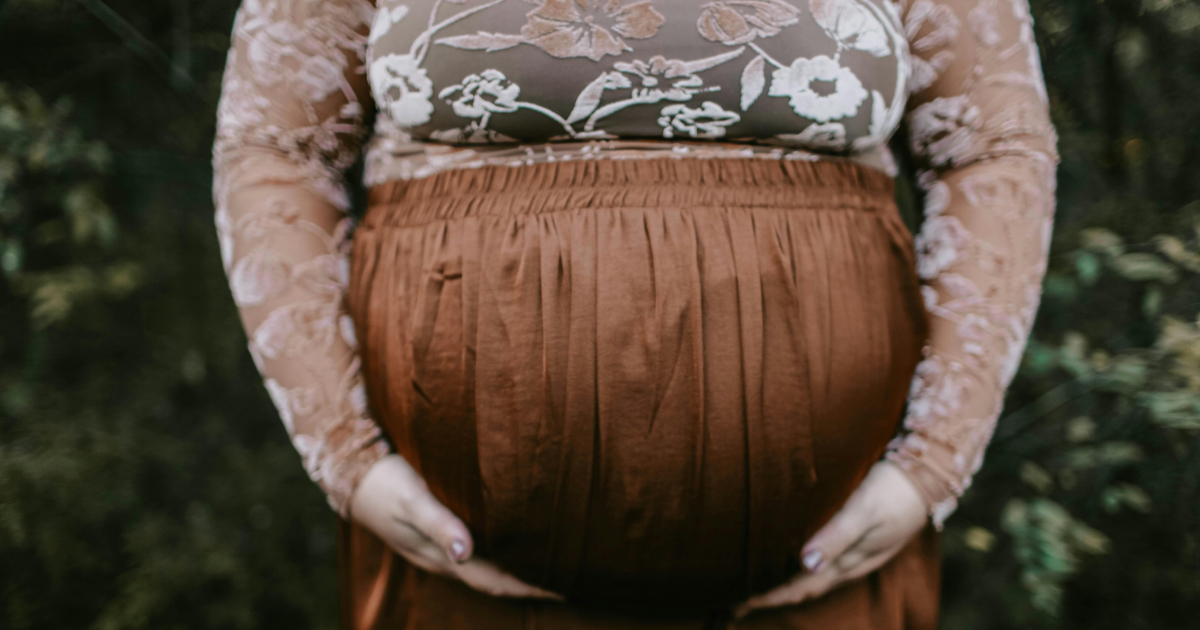Catholics encountering efforts by pressure groups to normalise and extend abortion are increasingly not only standing up publicly for what is right, but persuading others to join them.
The result is that secular elites are finding it more difficult to ram through such measures. This is heartening. What is less so is that, rather ominously, activists who see abortion as just another medical procedure and see opposition to it as religious bigotry have now shifted the fight onto the international law plane.
All this is exemplified by a report issued last week by the UN Committee on the Elimination of Discrimination against Women, or UNCEDAW. It is addressed to the government of Poland, which as an overwhelmingly Catholic country has so far held the line on the subject, and prohibits all terminations except those necessary for the mother’s life or health and those arising out of such events as rape.
Unfortunately, this UN document (available here), which in essence calls for the removal of all criminal restrictions on termination of pregnancy and more, has not received the attention it needs.
How, you might ask, does the UN come to be involved at all in demanding changes to Poland’s internal laws about abortion? The answer is convoluted, but important.
Since 1980, Poland has been a party to the UN Convention for the Elimination of Discrimination against Women, or CEDAW. An innocuous-sounding agreement, this obliges states in fairly general terms to provide for equality between men and women in administration, education, work and so on, and periodically to report to UNCEDAW on its progress towards implementing it.
UNCEDAW, in turn, having read the related report, can make recommendations on what it sees as necessary further steps. It is this process that lies behind the latest document its issued for Poland.
True, CEDAW actually says nothing whatever about abortion. Indeed, on pregnancy it limits itself to requiring “appropriate services in connection with pregnancy, confinement and the post-natal period" –wholesome ideas entirely acceptable in any Catholic environment.
However, this is not good enough for UNCEDAW, which openly sees the convention as a vehicle for taking forward progressive change, and so bluntly insists that whatever the wording says, sex equality implies a “fundamental right” to abortion.
Hence its demand for decriminalisation, not to mention further measures, such as the bankrolling of abortion by the State, pro-abortion education and strict circumscription of doctors’ rights to conscientious objection, and of the right of demonstrators to protest against abortion.
Anyone who knows how UN committees work will not be surprised. Theoretically composed of experts, they are largely recruited from activists signed up to the UN’s progressive and frankly anti-religious corporate mindset, which they can be expected to promote in any document they produce. This one is no exception.
A document affecting only an Eastern European country 900 miles away? Actually, no. This development should also worry Catholics in the UK.
The first point is that not only Poland but almost every country in the world, including the UK, is a party to CEDAW. It is therefore a racing certainty that any future report by UNCEDAW on the UK, or any other country that has anything other than the most permissive abortion laws, will make exactly the same demands on our, or that other country's, government that were directed to Poland.
The second point is that if UNCEDAW is right in saying that decriminalisation of abortion, and the other demands that go with it, are an implicit requirement CEDAW, the logic is that democracy is irrelevant, since a state cannot escape treaty commitments by reference to its own constitutional arrangements.
The fact that voters may be deeply unhappy, or that many Christians (not only Catholics) find it deeply troubling to their consciences, is beside the point: governments must go along whatever the people at the UN organisations think.
Ultimately, of course, how this will play out in the UK if the UN does make demands on the UK similar to those made of Poland depends as much on politics as on law: will the UK government say Boo to the UN goose and its tendentious interpretation of CEDAW (as it certainly can)?
Unfortunately here the signs are not good. Six years ago, in 2018, the same UNCEDAW committee peremptorily ordered London to change the law on abortion in Northern Ireland – which never enacted the Abortion Act 1967 – so as to align it with that in the rest of the UK. London, regrettably, obeyed it.
The government elected in 2019, it is fair to say, was more sceptical of UN pretensions and of over-expansive interpretations by UN apparatchiks of UK treaty commitments, and was quite prepared to do nothing about them.
Unfortunately the same cannot be said of the present UK government. Moreover, the Labour majority contains a large element, led by MPs such as Stella Creasy, who will agree with everything said by the UN on abortion and will be only too happy to do the UN’s bidding on it.
In short, in the next few years Catholics may find themselves with a serious fight on their hands as regards abortion, against an unholy alliance of the UN's apparatchiks and secularist politicians here.
We need to be prepared now to make our views known, and to make it clear that there are some things we will not stand for, whatever the UN thinks and claims.
Photo: Nuns and lay persons take part in a demonstration by pro-life organisations against the liberalisation of abortion following four bills submitted by Poland's ruling coalition bring sent for further work in the Polish Parliament, Warsaw, Poland, 14 April 2024. (Photo by WOJTEK RADWANSKI/AFP via Getty Images.)
Catholics encountering efforts by pressure groups to normalise and extend abortion are increasingly not only standing up publicly for what is right, but persuading others to join them.
The result is that secular elites are finding it more difficult to ram through such measures. This is heartening. What is less so is that, rather ominously, activists who see abortion as just another medical procedure and see opposition to it as religious bigotry have now shifted the fight onto the international law plane.
All this is exemplified by a report issued last week by the UN Committee on the Elimination of Discrimination against Women, or UNCEDAW. It is addressed to the government of Poland, which as an overwhelmingly Catholic country has so far held the line on the subject, and prohibits all terminations except those necessary for the mother’s life or health and those arising out of such events as rape.
Unfortunately, this UN document (available <a href="https://tbinternet.ohchr.org/_layouts/15/treatybodyexternal/Download.aspx?symbolno=CEDAW%2FC%2FPOL%2FIR%2F1&Lang=en" target="_blank" rel="noreferrer noopener"><mark style="background-color:rgba(0, 0, 0, 0)" class="has-inline-color has-vivid-cyan-blue-color">here</mark></a>), which in essence calls for the removal of all criminal restrictions on termination of pregnancy and more, has not received the attention it needs.
How, you might ask, does the UN come to be involved at all in demanding changes to Poland’s internal laws about abortion? The answer is convoluted, but important.
Since 1980, Poland has been a party to the UN Convention for the Elimination of Discrimination against Women, or CEDAW. An innocuous-sounding agreement, this obliges states in fairly general terms to provide for equality between men and women in administration, education, work and so on, and periodically to report to UNCEDAW on its progress towards implementing it.
UNCEDAW, in turn, having read the related report, can make recommendations on what it sees as necessary further steps. It is this process that lies behind the latest document its issued for Poland.
True, CEDAW actually says nothing whatever about abortion. Indeed, on pregnancy it limits itself to requiring “appropriate services in connection with pregnancy, confinement and the post-natal period" –wholesome ideas entirely acceptable in any Catholic environment.
However, this is not good enough for UNCEDAW, which openly sees the convention as a vehicle for taking forward progressive change, and so bluntly insists that whatever the wording says, sex equality implies a “fundamental right” to abortion.
Hence its demand for decriminalisation, not to mention further measures, such as the bankrolling of abortion by the State, pro-abortion education and strict circumscription of doctors’ rights to conscientious objection, and of the right of demonstrators to protest against abortion.
Anyone who knows how UN committees work will not be surprised. Theoretically composed of experts, they are largely recruited from activists signed up to the UN’s progressive and frankly anti-religious corporate mindset, which they can be expected to promote in any document they produce. This one is no exception.
A document affecting only an Eastern European country 900 miles away? Actually, no. This development should also worry Catholics in the UK.
The first point is that not only Poland but almost every country in the world, including the UK, is a party to CEDAW. It is therefore a racing certainty that any future report by UNCEDAW on the UK, or any other country that has anything other than the most permissive abortion laws, will make exactly the same demands on our, or that other country's, government that were directed to Poland.
The second point is that if UNCEDAW is right in saying that decriminalisation of abortion, and the other demands that go with it, are an implicit requirement CEDAW, the logic is that democracy is irrelevant, since a state cannot escape treaty commitments by reference to its own constitutional arrangements.
The fact that voters may be deeply unhappy, or that many Christians (not only Catholics) find it deeply troubling to their consciences, is beside the point: governments must go along whatever the people at the UN organisations think.
Ultimately, of course, how this will play out in the UK if the UN does make demands on the UK similar to those made of Poland depends as much on politics as on law: will the UK government say Boo to the UN goose and its tendentious interpretation of CEDAW (as it certainly can)?
Unfortunately here the signs are not good. Six years ago, in 2018, the same UNCEDAW committee peremptorily ordered London to <a href="https://catholicherald.co.uk/once-in-lifetime-tour-of-st-bernadettes-relics-will-bring-lourdes-to-all-of-ireland/?swcfpc=1"><mark style="background-color:rgba(0, 0, 0, 0)" class="has-inline-color has-vivid-cyan-blue-color">change the law on abortion in Northern Ireland</mark></a> – which never enacted the Abortion Act 1967 – so as to align it with that in the rest of the UK. London, regrettably, obeyed it.
The government elected in 2019, it is fair to say, was more sceptical of UN pretensions and of over-expansive interpretations by UN apparatchiks of UK treaty commitments, and was quite prepared to do nothing about them.
Unfortunately the same cannot be said of the present UK government. Moreover, the Labour majority contains a large element, led by MPs such as Stella Creasy, who <a href="https://catholicherald.co.uk/voting-with-faith-and-good-conscience/"><mark style="background-color:rgba(0, 0, 0, 0)" class="has-inline-color has-vivid-cyan-blue-color">will agree with everything said by the UN on abortion</mark></a> and will be only too happy to do the UN’s bidding on it.
In short, in the next few years Catholics may find themselves with a serious fight on their hands as regards abortion, against an unholy alliance of the UN's apparatchiks and secularist politicians here.
We need to be prepared now to make our views known, and to make it clear that there are some things we will not stand for, whatever the UN thinks and claims. <br><br><em>Photo: Nuns and lay persons take part in a demonstration by pro-life organisations against the liberalisation of abortion following four bills submitted by Poland's ruling coalition bring sent for further work in the Polish Parliament, Warsaw, Poland, 14 April 2024. (Photo by WOJTEK RADWANSKI/AFP via Getty Images.)</em>


















